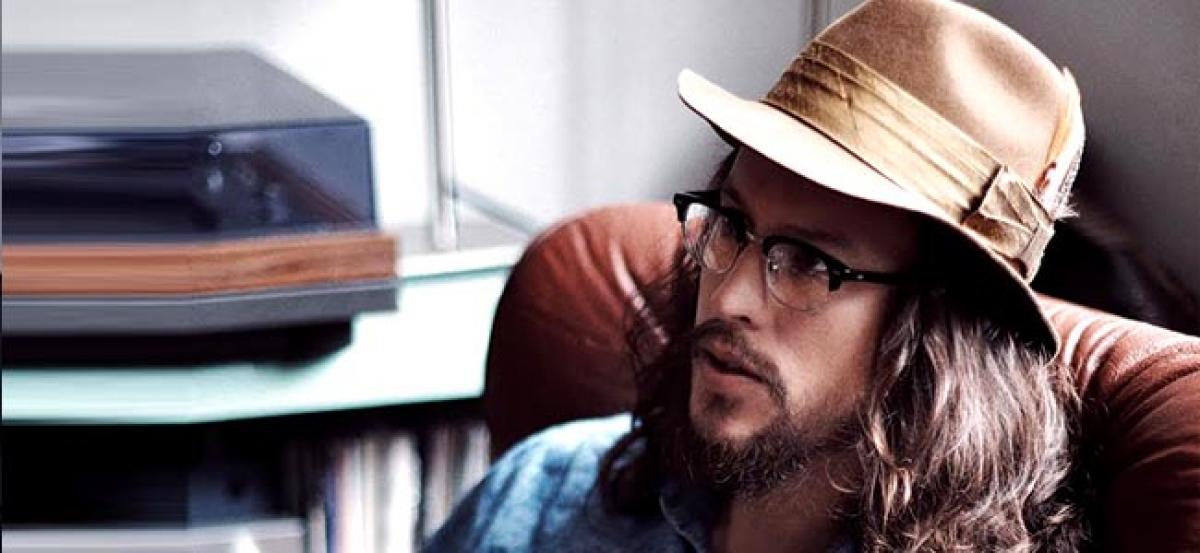Live
- PKL 11: 'No one can predict who will reach the playoffs,’ says UP Yoddhas coach
- Nobody praises Kejriwal's ten-year tenure: Sandeep Dikshit
- MacBook Air M3 Hits Lowest Price in India: Find Details
- High Court Adjourns Hearing on Allu Arjun's Petition to 4 PM
- Pawan Kalyan praises Chandrababu Naidu at Swarnandhra Vision 2047 document launch
- Chirec International looks to transform education with Chirec 2.0 vision
- Telangana CM Revanth Reddy Responds to Allu Arjun's Arrest in Delhi
- Uddhav Thackeray to PM Modi: Pay attention to Bangladesh, act to end Hindus’ misery
- Allu Arjun Arrested: KTR Reacts on X, Calls Arrest Unfair
- Bold steps by Modi govt in reviving Indian heritage, culture: Union Minister
Just In

Primetime Emmy award-winning American filmmaker Cary Fukunaga, who has roots in Japan, says he wishes to push out films with Asian-Americans as central characters.
Mumbai: Primetime Emmy award-winning American filmmaker Cary Fukunaga, who has roots in Japan, says he wishes to push out films with Asian-Americans as central characters. He wants to bring out the story of the days of struggle of his grandparents, who were Japanese-Americans and were put in camps during World War II.
After telling the tale of child soldiers in Africa in his 2015 war drama "Beasts of No Nation", the 39-year-old wants to share what his grandparents and other Asian-Americans of that generation went through between 1939 and 1945. But he is yet to develop any project.
"One day, I would like to do a story about my grandparents' generation who were Asian-Americans. They were put in camps during World War II. My father was born in a concentration camp in America because they (his family) were Japanese.
"My grandparents were protestors so, they were put in a more militarized camp that was under the Martial law," Fukunuga, who is here for Jio MAMI 18th Mumbai Film Festival with Star, told IANS.
Asked about the Hollywood 'whitewashing' row, he said: "Hollywood is not one unit. It is an industry. I haven't faced any sort of prejudices in terms of my work. I grew up with a very difficult name to pronounce for most of the Americans. I definitely experienced racism as a child."
Fukunuga, who won a Primetime Emmy award for Outstanding Directing for a Drama Series for "True Detective", also admits to having less Asian roles in the American cinema or television. But somehow, the Asian-American community isn't unified in the US.
"It means that if you make a film say about Asian-Americans in Los Angeles, you are not going to necessarily get a Chinese or Japanese or Philipino to come to watch it. You need people to come and see these things in order to make sense for the financiers to have them financed."
"And usually, it is okay in American culture to make fun of Asians. There is a lack of unity, I feel, in Asian-American population in terms of not really allowing that kind of sense of humour anymore.
"I certainly don't put it in my films," he added.
In fact, he is looking forward to push out more films that have Asian-American protagonists.
What about working with Indian actors?
"You never know. If I do a film on India, then why not?" he said.
Talking about his maiden visit to India, he said: "I just spent my last few days eating my way through Kerala and Tamil Nadu. I would like to come back and visit more cities. Hopefully, on a holiday."
But this time, it's work calling.
At the MAMI film gala on Tuesday, he spoke about TV trends and more during a panel discussion. He also conducted a masterclass on Wednesday.
How important are film festivals?
"The festival part, especially for a filmmaker, is a mixture of melancholy and fun because you are done with the struggle of making the film and you will celebrate it. The other side of it is, it's the end of it."
"What's great about fests is the camaraderie. Meeting other filmmakers and generally meeting people from around the world and getting an opportunity to travel to show your project which is a huge privilege.
"In this (MAMI) case, I am travelling and I don't have a film," he added.
He is also tied up with the TV series "Maniac", starring Emma Stone and Jonah Hill.
So, what gives him thrill -- the small screen or films?
"They are really the same in execution. When you are prepping or shooting, it is exactly the same. It is just a matter of budgets. I enjoy the creation of a feature film more because it is more contained...Two hours versus 10 hours, and you get to travel with it.
"It is something more of an ownership. TVs you are sharing that ownership with the writer and the network. It is a collective experience," said Fukunaga.
He enjoys his tryst with movies, but he also likes to have a healthy balance of interest and activities.
"I would like to do other things at the same time as making movies. I've always wanted to build furniture or something. I like working with my hands. I also don't want to do only one thing," said the filmmaker, who likes to build things, do gardening, ride horses and bikes, and of course, travel.
By Natalia Ningthoujam

© 2024 Hyderabad Media House Limited/The Hans India. All rights reserved. Powered by hocalwire.com







